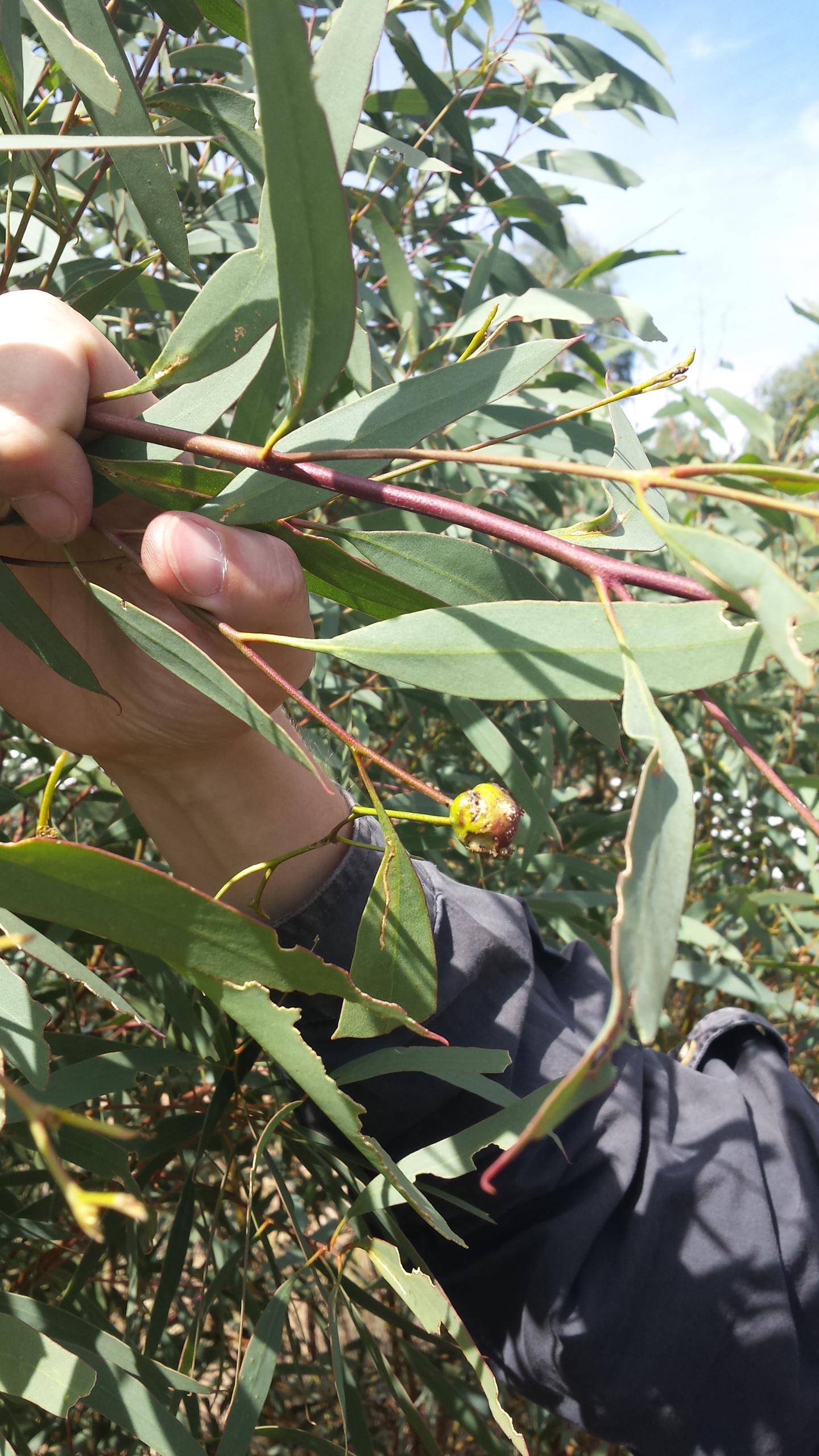
Credit: Carsten Külheim/Michigan Tech
What is the genetic basis for eucalyptus trees to produce that fragrant oil many of us associate with trips to the spa? Carsten Külheim, associate professor in Michigan Technological University’s School of Forest Resources and Environmental Science, has spent the past 10 years of his career studying eucalyptus. They are diverse, fast-growing species that includes scrubby bushes and 300-foot-tall flowering trees — mostly indigenous to Australia, but also New Guinea and Indonesia.
In particular, Külheim studies terpenes, organic compounds found in the plant’s leaves. Terpenes enable certain species (mostly plants, but also some insects) that produce them to give off strong odors that deter pests or attract pollinators. For example, hops, a primary ingredient in beer, contain terpenes, which gives the hops their piney smell. Certain varieties of eucalyptus and tea tree produce great quantities of just the right terpenes, which can be used for essential oils or biofuel distillation.
It is said that Australia’s Blue Mountains take their name from the smog-like mist eucalyptus trees emit, particularly on hot days; this mist is composed of terpenes vaporizing in the heat. Külheim and his fellow researchers want to know what, at the genetic level, causes production of about 50 different terpenes so they can crank it up to use the oil as a renewable fuel.
In the article “High marker density GWAS provides novel insights into the genomic architecture of terpene oil yield in Eucalyptus” in the journal New Phytologist (DOI: https:/
One reason for the interest in eucalyptus oil is because bioethanol (typically made from corn) and biodiesel (typically made with vegetable and soybean oils) do not have sufficient energy density to be useful for the aviation industry. Eucalyptus oil, however, can be converted into high-energy biofuel that can be used for jet fuel and even tactical missile fuel (JP-10).
However, many eucalypts currently have not been domesticated and vary greatly in their oil yield. Using genome-wide association studies (GWAS), Külheim has identified the genes that produce the components of eucalyptus oil that may be used for jet fuel, and the aspects that may be used for the production of biodiesel.
“This enables us to select for trees that mostly produce useful oil components for our purposes; we can use biotechnology to remove the genes for unwanted components or enhance the desired ones,” Külheim said. “We hope to provide eucalyptus farmers with genetic marker information to select trees at an earlier stage in their growth for higher terpene production. By choosing to cultivate new trees from power terpene producers, farmers are able to create new generations of the plants that naturally produce more oils.”
But beyond the promise of eucalyptus oil for biofuels and the beauty and wellness industries, the species could also prove an excellent cash crop for farmers in arid regions. The trees grow well in hot, dry regions, don’t need to be irrigated, and thus do not compete with food production on arable land.
###
Media Contact
Carsten Külheim
[email protected]
Original Source
https:/
Related Journal Article
http://dx.




